protest
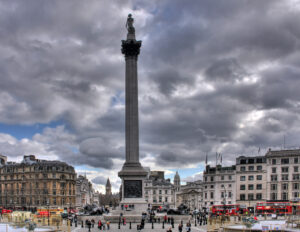 Protests are a common story these days, and the police are often kept busy for days trying to keep some kind of order. Not much has really changed in that arena. No nation is exempt from the possibility of violence breaking out because people feel they have been subjected to injustice…whether the facts bear out the belief or not. In 1926, miners across the United Kingdom went on strike. They were being subjected to an involuntary 13% wage cut, as well as an increase in weekly labor, and they were not planning to put up with it. When workers in other industries refused to work in solidarity with the striking miners, it led to a general strike. The work stoppage lasted nine days.
Protests are a common story these days, and the police are often kept busy for days trying to keep some kind of order. Not much has really changed in that arena. No nation is exempt from the possibility of violence breaking out because people feel they have been subjected to injustice…whether the facts bear out the belief or not. In 1926, miners across the United Kingdom went on strike. They were being subjected to an involuntary 13% wage cut, as well as an increase in weekly labor, and they were not planning to put up with it. When workers in other industries refused to work in solidarity with the striking miners, it led to a general strike. The work stoppage lasted nine days.
1926 was an unsettled year, with protests becoming quite common, especially 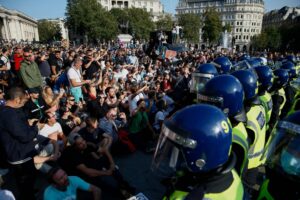 in London’s Trafalgar Square. As a result of the violence, the police wanted to set up a temporary police station, so they could keep an eye on things. The public would have none of it. Their outcry literally caused the police to drop the project. The problem, however, remained, so they knew that something had to be done. Finally, someone came up with a brilliant idea. That year, they built several large ornate light posts. One of the light posts was configured with the idea of housing what is most likely the world’s tiniest police station. This brilliant idea allowed the police to hide it, and their surveillance, in plain sight.
in London’s Trafalgar Square. As a result of the violence, the police wanted to set up a temporary police station, so they could keep an eye on things. The public would have none of it. Their outcry literally caused the police to drop the project. The problem, however, remained, so they knew that something had to be done. Finally, someone came up with a brilliant idea. That year, they built several large ornate light posts. One of the light posts was configured with the idea of housing what is most likely the world’s tiniest police station. This brilliant idea allowed the police to hide it, and their surveillance, in plain sight.
The police station pole was located inconspicuously at the south-east corner of Trafalgar Square. It is a rather 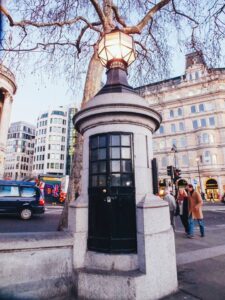 peculiar and often overlooked world record holder…Britain’s Smallest Police Station. Apparently this tiny box can accommodate up to two prisoners at a time, although its main purpose was to hold a single police officer. I guess you could say that it was a 1920’s version of the ring doorbell camera. It didn’t take video, but the officer inside could clearly watch the square. Once the light fitting was hollowed out, the builders installed a set of narrow windows in order to provide a vista across the main square. Also installed was a direct phone line back to Scotland Yard in case reinforcements were needed in times of trouble. In fact, whenever the police phone was picked up, the ornamental light fitting at the top of the box started to flash, alerting any nearby officers on duty that trouble was near. It was a brilliant idea, but as with all inventions, their usefulness lasts only until the next big thing comes along. Such was the case with the Trafalgar Square Light Pole Police Station. Eventually new technology made the little station obsolete. Today the pole is used for custodial storage.
peculiar and often overlooked world record holder…Britain’s Smallest Police Station. Apparently this tiny box can accommodate up to two prisoners at a time, although its main purpose was to hold a single police officer. I guess you could say that it was a 1920’s version of the ring doorbell camera. It didn’t take video, but the officer inside could clearly watch the square. Once the light fitting was hollowed out, the builders installed a set of narrow windows in order to provide a vista across the main square. Also installed was a direct phone line back to Scotland Yard in case reinforcements were needed in times of trouble. In fact, whenever the police phone was picked up, the ornamental light fitting at the top of the box started to flash, alerting any nearby officers on duty that trouble was near. It was a brilliant idea, but as with all inventions, their usefulness lasts only until the next big thing comes along. Such was the case with the Trafalgar Square Light Pole Police Station. Eventually new technology made the little station obsolete. Today the pole is used for custodial storage.
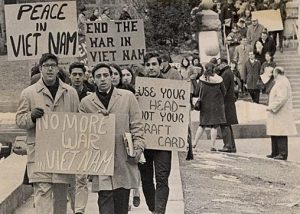 Registering for the draft is a requirement when a young man reaches 18 years of age. There is no draft in the United States anymore, but by registering the young men, the government could hold a draft, should a war bring such a need. During the Vietnam War, there were a lot of people who felt that the United States shouldn’t be in the war. Many young men didn’t want any part of it, and they decided to protest the war by burning their draft cards. Of course, this was forbidden by law, but they didn’t care. They were willing to take the chance, if it meant that they could avoid going to war.
Registering for the draft is a requirement when a young man reaches 18 years of age. There is no draft in the United States anymore, but by registering the young men, the government could hold a draft, should a war bring such a need. During the Vietnam War, there were a lot of people who felt that the United States shouldn’t be in the war. Many young men didn’t want any part of it, and they decided to protest the war by burning their draft cards. Of course, this was forbidden by law, but they didn’t care. They were willing to take the chance, if it meant that they could avoid going to war.
By May 1965 young men were protesting by burning their draft cards with greater frequency around the United States. To limit this kind of protest…in August 1965 the United States Congress enacted a law to broaden draft card violations to punish anyone who “knowingly destroys, knowingly mutilates” his draft card. Then, on October 15, 1965, in New York, David Miller, a young Catholic pacifist, became the first US war protestor to burn his draft card at a protest rally, in direct violation of a recently passed law forbidding such acts. Agents from the Federal Bureau of Investigation later arrested him. He was tried, found guilty, and sentenced to two years imprisonment, but that did not stop the protesting or the burning of draft cards. Subsequently, 46 men were indicted for burning their draft cards at various rallies, and four major court cases were heard. One of them, United States v. O’Brien, was argued before the Supreme Court. The act of draft card burning was defended as a symbolic form of free speech, a constitutional right guaranteed by the First Amendment. The Supreme Court decided against the draft card burners. It determined that the federal law was justified and that it was unrelated to the freedom of speech. This outcome was criticized by legal experts.
From 1965 to 1973, few men in the United States were convicted of burning their draft cards, and some 25,000 went unpunished. I suppose it was difficult to wrap our minds around the idea imprisonment for our young men over a protest. Still, it was illegal. And something had to be done. Before 1965, the act of burning a draft card was already prohibited by US statute and the registrant was required to carry the card at all times. Any destruction of the card was against the law. Also, it was entirely possible for a young man to destroy his draft card and still answer the call to service by appearing at an induction center and serving in the military. It also seems to me that if they had registered, that the government also had a copy of the registration, so if they were going to be drafted, having or not having the card was really a formality. And it was possible for a registrant to faithfully keep his card on his person but fail to appear when called. The draft 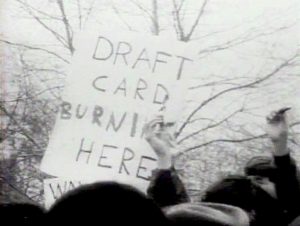 card burning was an act of protest against the war, more than it was a way to avoid the draft. Still, the image of draft card burning was powerful, and very influential in American politics and culture. Photos appeared in magazines, newspapers and on television. It was proof of a political divide between those who backed the United States government and its military goals and those who were against any United States involvement in Vietnam. With the political upheaval, Richard Nixon ran for president in 1968 on a platform based largely on putting an end to the draft, hoping to put an end to protesters burning their cards. As president, Nixon indeed did end the draft in 1973, rendering the symbolic act of draft card burning unnecessary, and registering just a requirement.
card burning was an act of protest against the war, more than it was a way to avoid the draft. Still, the image of draft card burning was powerful, and very influential in American politics and culture. Photos appeared in magazines, newspapers and on television. It was proof of a political divide between those who backed the United States government and its military goals and those who were against any United States involvement in Vietnam. With the political upheaval, Richard Nixon ran for president in 1968 on a platform based largely on putting an end to the draft, hoping to put an end to protesters burning their cards. As president, Nixon indeed did end the draft in 1973, rendering the symbolic act of draft card burning unnecessary, and registering just a requirement.
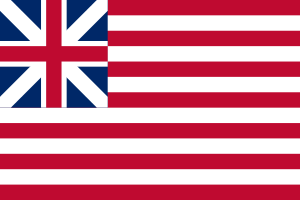 With the American flag at the center of so many protests, it seemed to me a good time to discuss the flag that many, and I believe truly most, Americans hold so dear. Over the years that the United states has been a nation, there have been a number of different flags. As we grew, the flag had to change to show the growing number of states. There were people who were not happy about the move from a flag with 13 stars to one with 20 stars…so the decision was made to reduce the number of stripes to 13, in order to honor the original 13 colonies. On this day, April 4, 1818, Congress passed an act to do just that at the suggestion of United States Naval Captain Samuel C Reid. The plan also allowed for a new star to be added when each new state was admitted. The stripes would never change. The act specified that each new flag design should become official on the first July 4, our Independence Day, following admission of one or more new states. The most recent change, from 49 stars to 50, occurred in 1960 when the present design was chosen, after Hawaii gained statehood in August 1959. Before that, the admission of Alaska in January 1959 prompted the debut of a short-lived 49 star flag. If another state were ever to be added, I think it would take some getting used to. Our current flag has been the flag for 57 years after all. That is almost all of my life.
With the American flag at the center of so many protests, it seemed to me a good time to discuss the flag that many, and I believe truly most, Americans hold so dear. Over the years that the United states has been a nation, there have been a number of different flags. As we grew, the flag had to change to show the growing number of states. There were people who were not happy about the move from a flag with 13 stars to one with 20 stars…so the decision was made to reduce the number of stripes to 13, in order to honor the original 13 colonies. On this day, April 4, 1818, Congress passed an act to do just that at the suggestion of United States Naval Captain Samuel C Reid. The plan also allowed for a new star to be added when each new state was admitted. The stripes would never change. The act specified that each new flag design should become official on the first July 4, our Independence Day, following admission of one or more new states. The most recent change, from 49 stars to 50, occurred in 1960 when the present design was chosen, after Hawaii gained statehood in August 1959. Before that, the admission of Alaska in January 1959 prompted the debut of a short-lived 49 star flag. If another state were ever to be added, I think it would take some getting used to. Our current flag has been the flag for 57 years after all. That is almost all of my life.
For 241 years, the American flag has been the symbol of our nation’s strength and unity. It’s been a source of pride and inspiration for millions of citizens. It has been a prominent icon in our national history. On January 1, 1776, the Continental Army was reorganized in accordance with a Congressional resolution which placed American forces under George Washington’s control. On that New Year’s Day the Continental Army moved to take back Boston, which had been previously been taken over by the British Army. Washington ordered the Grand Union flag hoisted above his base at Prospect Hill. It had 13 alternate red and white stripes and the British Union Jack in the upper left-hand corner. In May of 1776, Betsy Ross sewed the first American flag. On June 14, 1777, in order to establish an official flag for our newly independent nation, the Continental Congress passed the first Flag Act, which read, “Resolved, That the flag of the United States be made of thirteen stripes, alternate red and white; that the union be thirteen stars, white in a blue field, representing a new Constellation.” Congress passed several acts between 1777 and 1960, that changed the shape, design and arrangement of the flag and allowed for additional stars and stripes to be added to reflect the admission of each new state. The Act of January 13, 1794 provided for 15 stripes and 15 stars after May 1795. The Act of April 4, 1818 provided for 13 stripes and one star for each state, to be added to the flag on the 4th of July following the admission of each new state, signed by President Monroe. An Executive Order by President Taft dated June 24, 1912, established proportions of the flag and provided for arrangement of the stars in six horizontal rows of eight each, a single point of each star to be upward. The Executive Order of President Eisenhower dated January 3, 1959, provided for the arrangement of the stars in seven rows of seven stars each, staggered horizontally and vertically. The Executive Order of President Eisenhower dated August 21, 1959, provided for the arrangement of the stars in nine rows of stars staggered horizontally and eleven rows of stars staggered vertically. Today the flag consists of thirteen horizontal stripes, seven red alternating with 6 white. The stripes represent the original 13 colonies, the stars represent the 50 states of the Union. Even the colors of the flag are symbolic…Red symbolizes Hardiness and Valor, White symbolizes Purity and Innocence, and Blue represents Vigilance, Perseverance and Justice.
Our flag is more than just a piece of cloth, or a protesting tool. It is a flag to be proud of, not to burn. It is the symbol of a great nation…a nation that rushes to the defense of other weaker nations, so that they can remain free…a nation that vehemently protects the rights of it’s citizens, even when every fiber of its being want to slap 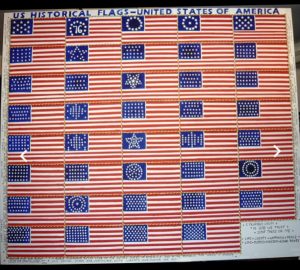 some people silly. Our nation knows that if one right is taken away, it opens a door for others to be lost as well. Our freedom depends on our insistence to follow the rules laid out before us…like them or not. As a patriot, I understand that, but I also wish that those who use the freedom to protest, would also realize that in burning the flag, they are, in essence, saying that they don’t think that we should have the very freedoms they use to protest. It is really a vicious circle when you think about it. They are fighting, and burning a flag, in an effort to have the freedom to do what they want, but in doing so, they are saying that they don’t respect the nation that made that very thing possible for them. What a strange idea!
some people silly. Our nation knows that if one right is taken away, it opens a door for others to be lost as well. Our freedom depends on our insistence to follow the rules laid out before us…like them or not. As a patriot, I understand that, but I also wish that those who use the freedom to protest, would also realize that in burning the flag, they are, in essence, saying that they don’t think that we should have the very freedoms they use to protest. It is really a vicious circle when you think about it. They are fighting, and burning a flag, in an effort to have the freedom to do what they want, but in doing so, they are saying that they don’t respect the nation that made that very thing possible for them. What a strange idea!
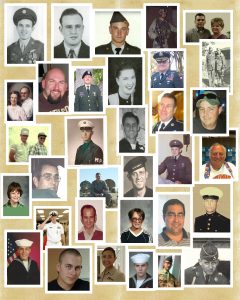 In times of war, and even in times of peace, there is a group of people who stand always at the ready…prepared to go at a moments notice, into battle to defend this country and the freedoms we enjoy. They are not always treated in the way they should be treated. It’s incomprehensible to me that we can ask these men and women to protect us in times of trouble, and then protest them when we don’t like the war they have been asked to fight. Today is Veterans Day. It is a day in which to honor all who served, in all wars, whether they were killed in action, died later, are retired or discharged from service, or are currently serving. So many veterans have served this country over the years. Without our soldiers, we would not be a free nation. In fact, were it not for our soldiers, we would probably still belong to England, or worse.
In times of war, and even in times of peace, there is a group of people who stand always at the ready…prepared to go at a moments notice, into battle to defend this country and the freedoms we enjoy. They are not always treated in the way they should be treated. It’s incomprehensible to me that we can ask these men and women to protect us in times of trouble, and then protest them when we don’t like the war they have been asked to fight. Today is Veterans Day. It is a day in which to honor all who served, in all wars, whether they were killed in action, died later, are retired or discharged from service, or are currently serving. So many veterans have served this country over the years. Without our soldiers, we would not be a free nation. In fact, were it not for our soldiers, we would probably still belong to England, or worse.
Our soldiers sacrifice everyday. In a post my nephew, Steve Spethman posted today, was a good explanation of just what a veteran really is, and I liked it. The saying went like this, “What is a veteran? A ‘Veteran’ – whether active duty, discharged, retired, or reserved – is someone who, at one point in his life, wrote a blank check made payable to ‘The United States of America,’ for an amount of ‘up to, and including his life.’ That is honor. And there are way too many people in this country today, who no longer understand that fact.” That really says it all. We think about our soldiers going into war, and fighting the 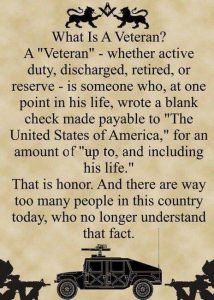 enemy. We even think about them losing their lives. We think about their loved ones back home worrying and praying for their safe return every day. We think about the irony and sometimes stupidity of war, and wonder why we can’t all just get along. People protest the wars, screaming at the soldiers because they did their duty and fought the war as they were ordered to do.
enemy. We even think about them losing their lives. We think about their loved ones back home worrying and praying for their safe return every day. We think about the irony and sometimes stupidity of war, and wonder why we can’t all just get along. People protest the wars, screaming at the soldiers because they did their duty and fought the war as they were ordered to do.
We think about and do so many things concerning war, but just how often to we really thing about the honor and integrity of the men and women who actually go into war, or even stand at the ready, just in case we need them. They know that every time they deploy with their unit, that it could easily end up being the last time they see their family, friends, or their country. They put their lives on hold, missing out on their children’s sporting events, school plays, holidays, birthdays, and even their birth, all to go out and put their lives on the line for people they don’t even know. Now, that’s honor!! Happy Veterans Day to all our veterans, and thank you all for your service. This nation and all it’s people owe you a debt of gratitude that we can never repay. We honor you today. God bless you all.
 In this day of the internet, cell phones, television, and radio, a new form of patriotism has emerged. The rights our American soldiers fought for are in peril. In a year in which many Americans were offended by literally everything, and the internet, specifically Facebook, has become one of the greatest sounding boards there is, everyone has stepped up to the plate to state their views and yes, even to hear the views of others. Of course, hearing the views of other people, is not always something that is well received. Sometimes, people lose sight of the fact that since we each own our own Facebook page, we also have the right to say what we want to say. Others may not agree, but that doesn’t matter, because this is our page…our right to free speech.
In this day of the internet, cell phones, television, and radio, a new form of patriotism has emerged. The rights our American soldiers fought for are in peril. In a year in which many Americans were offended by literally everything, and the internet, specifically Facebook, has become one of the greatest sounding boards there is, everyone has stepped up to the plate to state their views and yes, even to hear the views of others. Of course, hearing the views of other people, is not always something that is well received. Sometimes, people lose sight of the fact that since we each own our own Facebook page, we also have the right to say what we want to say. Others may not agree, but that doesn’t matter, because this is our page…our right to free speech.
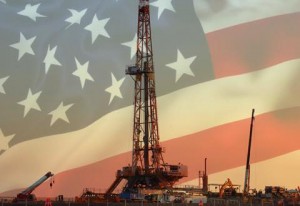
Of course, people with differing views have the right to challenge our views…to state their own case, as it were, but they don’t have the right to challenge our right to speak our own opinion on our own page. If we are offended by the views of another person, we need to move past the post. Never is this more evident than when the opinions of one person in a family offends another, and they decided to take things to the next level…unfriending. I won’t do that, because while I will state my opinion, and I will respect the rights of my friends to post what they choose, and to debate my opinion, the family connection is far too important to me to argue in 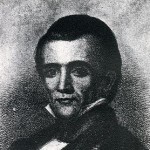 such a way.
such a way.
In history, patriots had to go to the place they were going to protest. And of course, by the time they could get there, it was probably too late to protest. I suppose maybe our politicians were more honest back then, or maybe we just didn’t know all that was going on. It has been said that some presidents would never have been elected if we could have seen them. That is so true, and sometimes I think maybe that should be how it is today. If race, gender, and maybe even party affiliation weren’t able to be seen, who would we elect? That might be something to think about. Maybe we need to stop giving a pass because of race or gender, and make the politicians do what’s right.
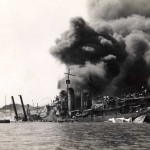 Seventy one years ago today, one of the most horrific attacks ever launched on US soil took place. Following that attack, the United States entered World War II. That would eventually lead to the men who would become my dad and my uncles, also entering World War II. So many people think that the United States loves to go to war, but that is simply not the case. The United States is a nation of people who try to give everyone the right to live and let live, but if we are provoked or if another nation is in need, most nations or terrorists will find that we are a nation they will wish they had not messed with.
Seventy one years ago today, one of the most horrific attacks ever launched on US soil took place. Following that attack, the United States entered World War II. That would eventually lead to the men who would become my dad and my uncles, also entering World War II. So many people think that the United States loves to go to war, but that is simply not the case. The United States is a nation of people who try to give everyone the right to live and let live, but if we are provoked or if another nation is in need, most nations or terrorists will find that we are a nation they will wish they had not messed with.
Our family has not lost a soldier to war that I am aware of, at least not as far back and including World War I, so I don’t know what it feels like to lose someone to combat. I do know that whenever our nation is involved in a war, my prayers go out for protection for all our soldiers…those I know and those I don’t.
There have been times when our nation has been divided over whether or not we should be involved in a war, but when it is an attack on our soil, very few people protest the war. It just feels different, more personal, whether we know anyone who lost their life or not. They are our people, and this is our nation…our safe zone, and we don’t like having anyone come in and violate that safe zone. The attack on Pearl Harbor came as such a shock to so many people, because they had been lead to believe that we had made an 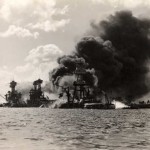 agreement with Japan that they would honor, but no matter what they are like today, they did not honor the agreement made than, and many people paid for our nation’s trusting ways with their lives.
agreement with Japan that they would honor, but no matter what they are like today, they did not honor the agreement made than, and many people paid for our nation’s trusting ways with their lives.
The attack on Pearl Harbor will forever be embedded in the minds of those who lived it and those who have studied it. Today, I want to honor all the men and women who lost their lives at Pearl Harbor and in World War II, and all the men and women who have served their country in World War II and all the other wars our nation has been involved in. Thank you all for your service.
 When our nephew, Barry was a little boy, he decided that he didn’t really like having his birthday on December 11th, because it was so close to Christmas. Many people with December birthdays feel the same way. It always seems like their birthday gets lost in all of the Christmas hustle and bustle, and they end up feeling gypped.
When our nephew, Barry was a little boy, he decided that he didn’t really like having his birthday on December 11th, because it was so close to Christmas. Many people with December birthdays feel the same way. It always seems like their birthday gets lost in all of the Christmas hustle and bustle, and they end up feeling gypped.
I’m not sure if it was in protest, or what exactly, but at some point, Barry decided to change things up a bit. Obviously your birthday is when it is, and you can’t change that fact, but Barry decided to forgo the gift part of it until his un-birthday came around. The date he chose for his un-birthday, was of course, June 11th, because that put it exactly 6 months later. His mom, my sister-in-law, Jennifer always said that the perfect birthday was June 25th, because it was exactly 6 months from Christmas, giving the person who had that perfect birthday, gifts exactly 6 months apart. Barry thought that was a pretty good idea, but his birthday just didn’t cooperate, so he settled for the un-birthday of Jun 11th.
I always thought that was such a funny idea, but very clever. I don’t think I would like having my birthday that close to Christmas, because I can see where it could be  problematic for the birthday person. Still, I don’t know if I would have ever considered that it could be celebrated at a different time. Barry was definitely using his head when he came up with that idea…unless he had a little help from his mom, my sister-in-law, Jennifer, and that is entirely possible.
problematic for the birthday person. Still, I don’t know if I would have ever considered that it could be celebrated at a different time. Barry was definitely using his head when he came up with that idea…unless he had a little help from his mom, my sister-in-law, Jennifer, and that is entirely possible.
I don’t know if Barry still celebrates his birthday in June, but since today is his real birthday, I just want to say happy birthday Barry!! You have grown into a very special person, and we are very proud of you. And if you do still celebrate your birthday in June, I’ll try very hard to remember to wish you a happy un-birthday then.

